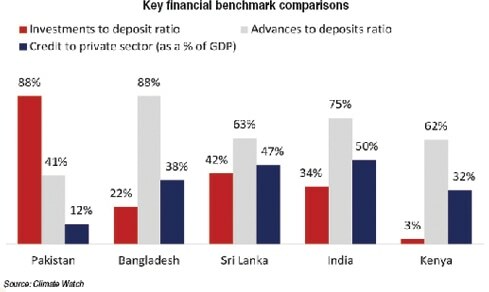The perennial ordeal haunts sugarcane growers as harvesting and marketing proceed side by side. They complain they are not paid a fair price for their produce after 10 months of hard work in the cane fields.
Critics blamed the growers partly for their existing hardships. Authorities said several growers in Dera Ismail Khan grew the problematic sugarcane variety CO1148, which is not popular with sugar mills. It is often diseased, weighs more and lacks in juice, which does not make it a good choice for producing sugar.
Farmers, however, maintain that only 10 per cent area of the crop this season was of CO1148, called Chitta (white) India, named after its origin from where it was brought in the 1970s by a local mill.
“Millers say 21 per cent area is under Chitta India, which is untrue. It is an exaggeration to make money at our cost,” said Moazzam Kamran, vice president of Aiwan-e-Zaraat (Chamber of Agriculture), Dera Ismail Khan.
The provincial food directorate has already taken punitive measures to discourage CO1148. The support price of Chitta India has been fixed at 7.5 per cent lower than for other varieties, which is Rs170 per 40 kilogram this year. Farmers accuse the sugar mills of buying their ‘good quality’ cane at the price of CO1148.
“This is clearly exploitation because they call our higher quality crops Chitta India so they can pay less,” said Mr Kamran, “or they just don’t purchase from the farmers who try to argue on the price.” The price difference is of Rs50 per 40 kilogram, according to Moazzm Kamran, Chitta India is purchased at Rs120 per 40 kilogram.
Dera Ismail Khan is among the top four cane growing districts of Khyber Pakhtunkhwa.
Around 12,000 hectares of area is annually sown with the crop that yields around 570,000 tonnes in a good harvesting season. The crop is the backbone of Dera Ismail Khan’s agriculture based economy. Thousands of small farmers, labourers, transporters, owners of small agro-businesses depend on the crop. The area houses four of the seven sugar mills in Khyber Pakhtunkhwa.
Besides, several wealthy families who own the mills, a good number of industrial labour, wholesalers and retailers dealing in sugar, and an ever growing number of middlemen and commission agents make fortunes from sugar manufacturing.
However, growers always complain against an alliance of ‘market forces’ that, according to them, denies them a fair price for their crop.
Aiwan-e-Zaraat, said their vice president had approached the government against the ‘exploitation’ to which growers were being subjected to.
“Hundreds of growers assemble daily outside their designated mill(s), hoping to sell their cane loaded in trolleys,” said the growers’ leader, “yet at the end of the day, most of them have to sell it to the middlemen because a single sugar mill buys not more than 15-19 trolleys a day from the growers.”
The cane market is a tricky affair with ample room for profiteers to take advantage of the growers’ cane holding capacity. Growers cannot hold back their produce even for a day once they take it to a mill’s premises.
Cropping area has been divided into several zones. Each mill is allotted a specific number of zones to procure the crop from growers. This is supposed to make things simple, clear, and marketing an organised affair.
However, this is not the case. Growers take their produce to the designated mills and mills issue permits/vouchers to seal purchasing deals with the growers.
While hundreds of trolleys assemble every day outside the factories, the millers are accused of issuing only a handful of vouchers/permits daily. This makes the assembled growers panicky. They fear a hit on account of transportation charges, if they hold back their crop. To avoid headache and extra costs, they usually prefer to dispose of the crop at a price lower than the government fixed support price.
This makes a perfect setting for the middlemen to come in, snatching the moment to their advantage. “They pay Rs68,000 for a trolley containing 500 kilograms of canes instead of the official price of Rs85,000”, said Qazi Shafiq, another sugarcane grower from DI Khan.
Meanwhile, authorities of the directorate of food expressed ignorance about the complaints made in writing by Aiwan-e-Zaraat. “They can simply bring the anomaly to the notice of the local cane inspector, present in all districts to keep an eye on the market,” said an official.
To growers, the cane inspector happens to be a small fish among plenty of sharks around to make quick money through exploitation of growers.













































Dear visitor, the comments section is undergoing an overhaul and will return soon.